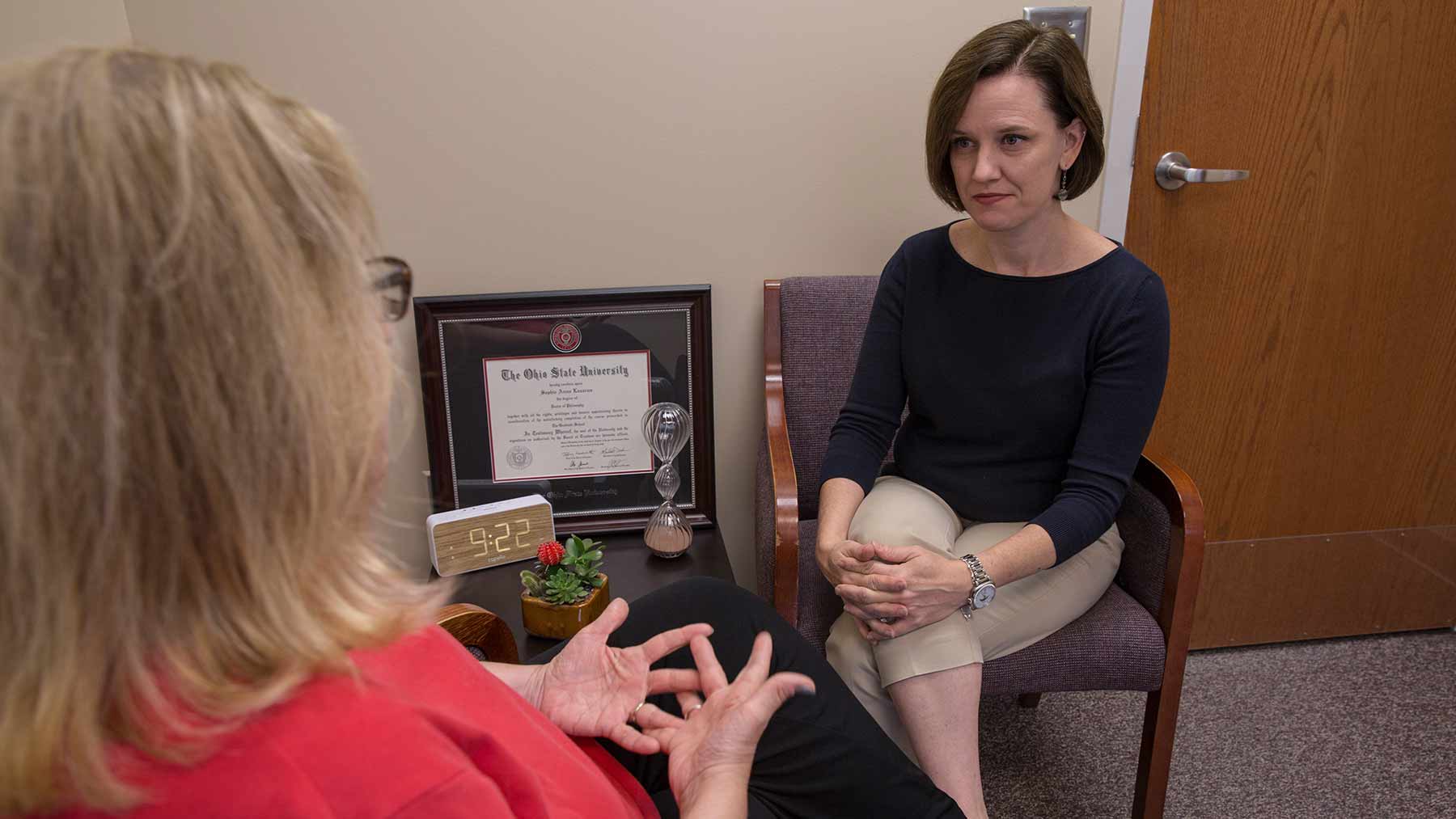Should you consider therapy?
 How do you know if you could benefit from psychotherapy?
How do you know if you could benefit from psychotherapy?
There’s no easy answer to that question. But consider this: Life can be incredibly stressful, and it’s easy to disrupt its delicate balance.
Many of us are stretched thin -- with working full-time, caring for children, helping with aging parents – and already feel overwhelmed. It begins to feels as though one more stressful thing will break the whole system.
At that point, it may be helpful to talk to a therapist, whose goal is to support you and help you acquire and develop skills for coping with the stress of daily life and with significant life events such as losing a loved one or struggling with a relationship.
Airline attendants remind passengers to put on their own oxygen mask before assisting others. The same rule holds here, you can’t take care of others in your life if you aren’t taking care of yourself. It’s easy to forget how important self-care is; remember, it’s OK to devote time (and money) to tend to your own mental health.
When is it time to ask for help?
If you’re feeling overwhelmed to the point that you can no longer manage your day-to-day life, you should definitely seek help. Other signs include feelings of sadness that you just can’t shake, lack of motivation (again, that you can’t shake) or a lack of interest in things you usually enjoy. Another common signal that help might be needed is having a “short fuse” – feeling more irritable than usual. You may be suffering from depression or anxiety and not even realize it.
Even better than waiting until it feels like an emergency, seek help when things start to feel overwhelming. That way, you can make an effort to get ahead of the problem. So many patients wait too long to seek care. This doesn’t necessarily make treatment more difficult or more time consuming, but it certainly prolongs unnecessary suffering.
How can I find help?
Reaching out to your primary care physician is a good place to start if you think you need help. Your healthcare provider might offer medication, but they can also place a referral for behavioral health services.
You don’t necessarily need a referral. Check your healthcare plan to see what behavioral healthcare services are available. For example, the Ohio State healthcare plan doesn’t require a referral. You can look at the list of in-network providers and refer yourself directly.
Psychotherapy is generally covered by insurance. Many employers also offer Employee Assistance Plans that provide a limited number of free therapy sessions to employees who seek help. Be sure to look at your insurance and your employer’s benefits information to see what services are available.
How can therapy help?
By working with a psychotherapist, you’ll develop skills to help reduce symptoms if you’re depressed or anxious. Most often, therapy is time-limited and problem-focused. The goal is to teach you how to be your own therapist, so that moving forward you’ll be better prepared to manage stress, anxiety or depression.
For example, if you’re depressed, your therapist might ask you to monitor your moods, thoughts and behaviors in a fairly structured way so that you’ll start to understand the relationship between your thoughts, feelings and behaviors.
In cognitive behavioral therapy, a typical appointment would include setting the agenda, checking in on your mood, reviewing your homework, learning and practicing new skills, and receiving a new homework assignment to focus on building new skills.
Some people may require more or less treatment, depending on the severity of what they’re experiencing. Just as with any medical condition, your provider will work with you on a treatment plan to ensure you are both on the same page, your concerns are being addressed and your needs are being met.




